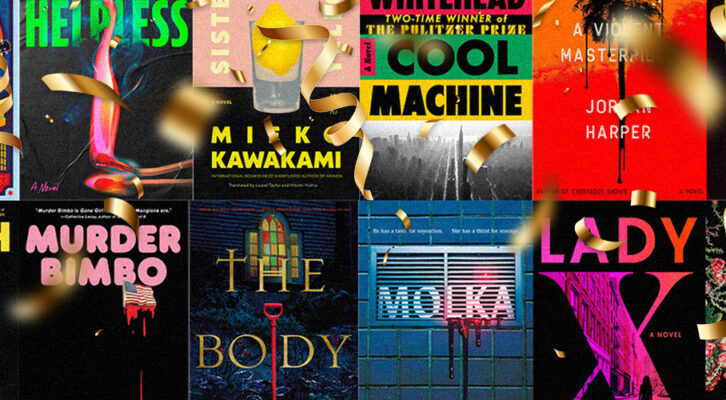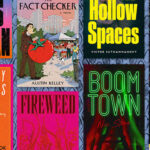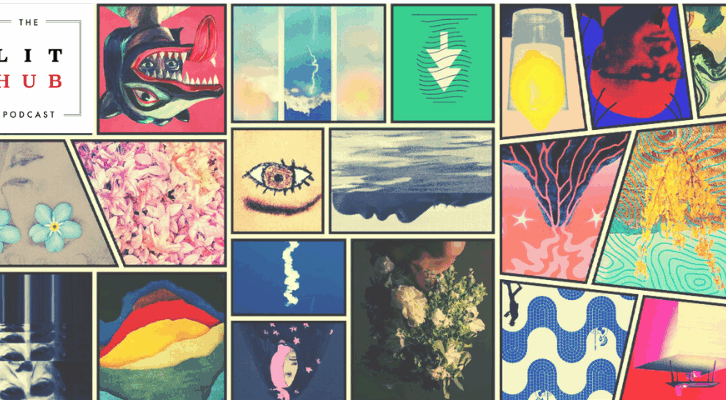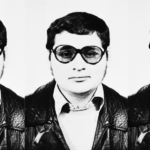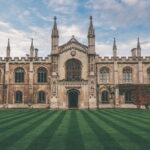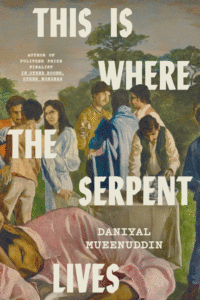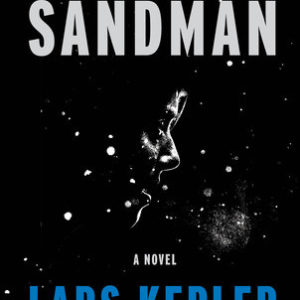When I was a child, my parents took me to a church on the Canadian prairies to hear a talk given by a human rights activist from El Salvador. I might have been nine or ten years old, and though I recall few of the details, I was compelled by the way that the young activist spoke so poignantly about the struggle for justice in her country. I had many questions for my parents at the end. They did their best to answer them, but after a while, they gave each other a significant glance and changed the subject. Much later in life I was to learn the meaning of that glance—my parents were heir to the era of Partition, the sundering of the Indian subcontinent in 1947, and the staggering bloodshed that followed from it. Though they’d lived through the fallout of Partition, and the turbulent creation of the nation of Pakistan, it wasn’t a subject they ever discussed. But they’d taken me to that lecture for a reason—to teach me to think of a world beyond my own safety and comfort, a world they’d experienced firsthand.
The talk in the church that day lit a spark that was to burn throughout the years of my education, and that would inform the subjects I would go on to write about in my books. When I had the vocabulary and the tools, I learned that what I was passionate about was the protection of human rights. And through a number of different careers—immigration law, the editing of a magazine, teaching human rights law—I ended up at a place where I could tell stories that I hoped would be worthy of an audience. I became a crime novelist writing about contemporary human rights issues.
I invented my Muslim detective, Esa Khattak, and his stalwart hockey-playing partner, Rachel Getty, and I set them loose to solve crimes in minority communities that were tied to the global human rights picture. Human rights abuses are crimes that take place against a larger backdrop, crimes that require both context and resolution. I’d been an avid reader of mystery fiction from an early age, and what drew me into those stories was that there was always a puzzle to solve. It wasn’t until I was older that I began to appreciate that the puzzle in question wasn’t murder-clues-suspects, but rather the nature of human behavior. What motivates us to do the things we do? And how do we reconcile our humanity with callous acts of darkness?
For years, I had been studying war crimes and crimes against humanity, both in their inception phase and in the aftermath of genocide. As a law student in Ottawa, Canada, I joined groups on Parliament Hill protesting the Bosnian genocide and the siege of Bosnia’s UN-designated safe areas before the fall of Srebrenica took place. For a decade, the voices of survivors of that genocide kept me company—through research, through interviews and news reports, through statements made before the Security Council, and later through testimony given at the International Criminal Tribunal for the former Yugoslavia. I thought and wrote about those voices often, both in fiction and non-fiction. But I knew hadn’t told the story I wanted to tell until I wrote my first crime novel, The Unquiet Dead.
Why a mystery about the dissolution of Yugoslavia and the genocide that took place in its aftermath? When the war in Bosnia broke out, I was a law student studying human rights law. I was also a Muslim woman, deeply concerned about a war that targeted Bosnian Muslims because of their identity—a war where the mass rape of Muslim women was carried out as a deliberate policy. It was a horror beyond description, but as a writer I knew it merited description. It needed a point of entry, a point of understanding and empathy, and the best way I knew to do that was to create a detective from a background like myself to explore the two issues that remain at the heart of all my books: the politicization and demonization of Muslim identity, and the impunity with which massive human rights violations take place before our eyes.
In The Language of Secrets, I wrote about the issue of Muslim identity and terrorism, mainly because as a Muslim woman, I deal with the question of how these two things are conflated, nearly every day. I wanted to suggest an answer to that question, and in doing so, I posed questions of my own in return: of what value is our knowledge of history? Is context relevant to how we interpret the world? How informed are we about the social and political conditions that have led us to this moment? Are we—identifying myself as a citizen of the West who holds multiple identities—the only ones to experience pain, loss, suffering, and confusion, without the power to change any of those things? What of those whose aspirations for freedom and human dignity are hemmed in by borders or movements or ruthless political actors?
With programs like Homeland and 24, and movies like American Sniper and Zero Dark Thirty, along with an indistinguishable pack of political thrillers, these are not questions I often see explored. So The Language of Secrets was a kind of speaking back. A speaking up.
And then for some time, I have been occupied by the subject of political prisoners—prisoners of conscience detained or disappeared by the state, not for committing any crime, but rather for speaking up in defense of human dignity and freedom. We had reported on political prisoners during my tenure at Muslim Girl magazine, and what it felt like for prisoners to believe they had vanished from the world and wouldn’t be reclaimed. To that end, I had kept my reading on the subject current, focusing particularly on Uzbekistan (a subject I write about in another series), and Iran and Syria.
I once worked in immigration and refugee law, and I particularly wanted to write about the critical plight of refugees. The central question posed by refugee cases was what constituted a well-founded fear of persecution, and what would suffice as evidence of that fear in circumstances when it was difficult to produce any evidence at all? And so my next two novels, Among the Ruins and A Dangerous Crossing, about Iran and Syria respectively, became two companion novels centered on a single theme: do the lives of political dissidents matter at all? And if they do, how can we reclaim them?
I’m married to a Canadian-Iranian political activist and academic, who is an outspoken critic of the Iranian regime. I’ve watched the currents of political change sweeping Iran through his eyes. I’ve witnessed the campaigns he has organized on behalf of political detainees—some of them his friends. And I’ve had my own unrelenting worries about his travels in the Middle East and elsewhere. People like my husband are detained and disappeared all the time, held without trial or charge, without access to a lawyer or their families. They may be tortured and murdered in the state’s custody, while their families may never learn the truth about their fate.
The story of Among The Ruins is the story of what happens when people rise up, demanding political freedom from a government that holds the levers of power. Two detectives are solving a crime, while a political prisoner fights for his sanity and his life against the weapons the state wields against him. The book contrasts the country’s grim human rights picture with the dignity and aspirations of the Iranian people themselves, inspired partly by the rise of Iran’s Green Movement, in the aftermath of the 2009 election inside Iran—popularly known as the stolen election. Representing the people’s aspirations for political freedom, reformist candidates were widely expected to win this election, yet failed to do so. The results favoring hardliner candidate, Mahmoud Ahmadinejad, were announced before the polls had closed. Across Iran, there were massive demonstrations to protest the election’s outcome. These peaceful protests were met with widespread repression and violence, including the detention and torture of protesters, while the leaders of the Green Movement are still under house arrest. The Green Movement offered the possibility of a democratic future that recognized the rights of all Iranians. When the Greens were crushed, that opportunity was lost. Subsequently, there has been another, more legitimate election, and a new round of protests around a different set of issues. What hasn’t changed is the regime’s repressive response to any political dissent.
The hope offered by the democratic opening that took place in Iran could not be recaptured in my latest book in the series, A Dangerous Crossing. In writing about the war in Syria, and the Syrian refugee crisis, I wanted to write about hope. But through the course of my research, I had to come to terms with the fact that the situation facing political dissidents in Syria was exponentially worse than anything happening in Iran. There were the stories we are all familiar with: borders being closed, barbwire fences going up, boats sunk at sea, detentions centers springing up to prevent refugees from crossing. Hunger, desperation, mass migration—we were seeing all of that on the news, and apart from an initial moment of welcome, the tide against refugees was turning. It was happening everywhere: in the press, in public response, in political rhetoric, and most tellingly in policy and legislation. A refugee is a person who flees their own country with a well-founded fear of persecution. Yet none of this seemed to matter, particularly in the United States.
So I returned to the question of what constitutes a well-founded fear of persecution. And the more I read about Syria, and spoke to people who were informed about its collapse, the more I realized that there were two aspects to this overall harm: the war against the people of Syria, and the ongoing horrors of Syria’s all-pervasive detention system. To communicate the scope of Syria’s humanitarian crisis, it is important to illustrate the reasons the Syrian people are either internally displaced or fleeing as refugees: the country is being destroyed, and those who spoke up against this massive repression and destruction have joined the thousands of others who were tortured and executed in Syria’s detention centers. It wasn’t difficult to understand that within Syria, there is no place of refuge. Yet to flee as a refugee is no guarantee of safety either.
I’d expected to write more about the refugee crisis than political detainees, but I ended up doing both because they were two sides of the same tragedy. I wanted to squarely ask the question: if we knew in personal, humanizing detail what was happening in Syria, would it have an impact on refugee policy? Would it engage our compassion rather than our fears? What would it take to remember that Jewish refugees were turned away during the Second World War, an act we all condemn now? Fiction creates these openings and possibilities, allowing us to experience and encompass the humanity of the other, and perhaps to reconsider the beliefs we held fast to before.
These are the possibilities that occupy me as a writer and activist. The scope of human rights abuses around the world is overwhelming and difficult to grapple with. The individuality of those who stand up for their rights becomes erased. Yet when we connect with each other’s humanity, person to person, story to story, we’re able to forge a bond of empathy, which may in turn lead to action. To me, the novel then becomes about something—it forces us to critically re-examine our assumptions about the world, thereby challenging the status quo.



